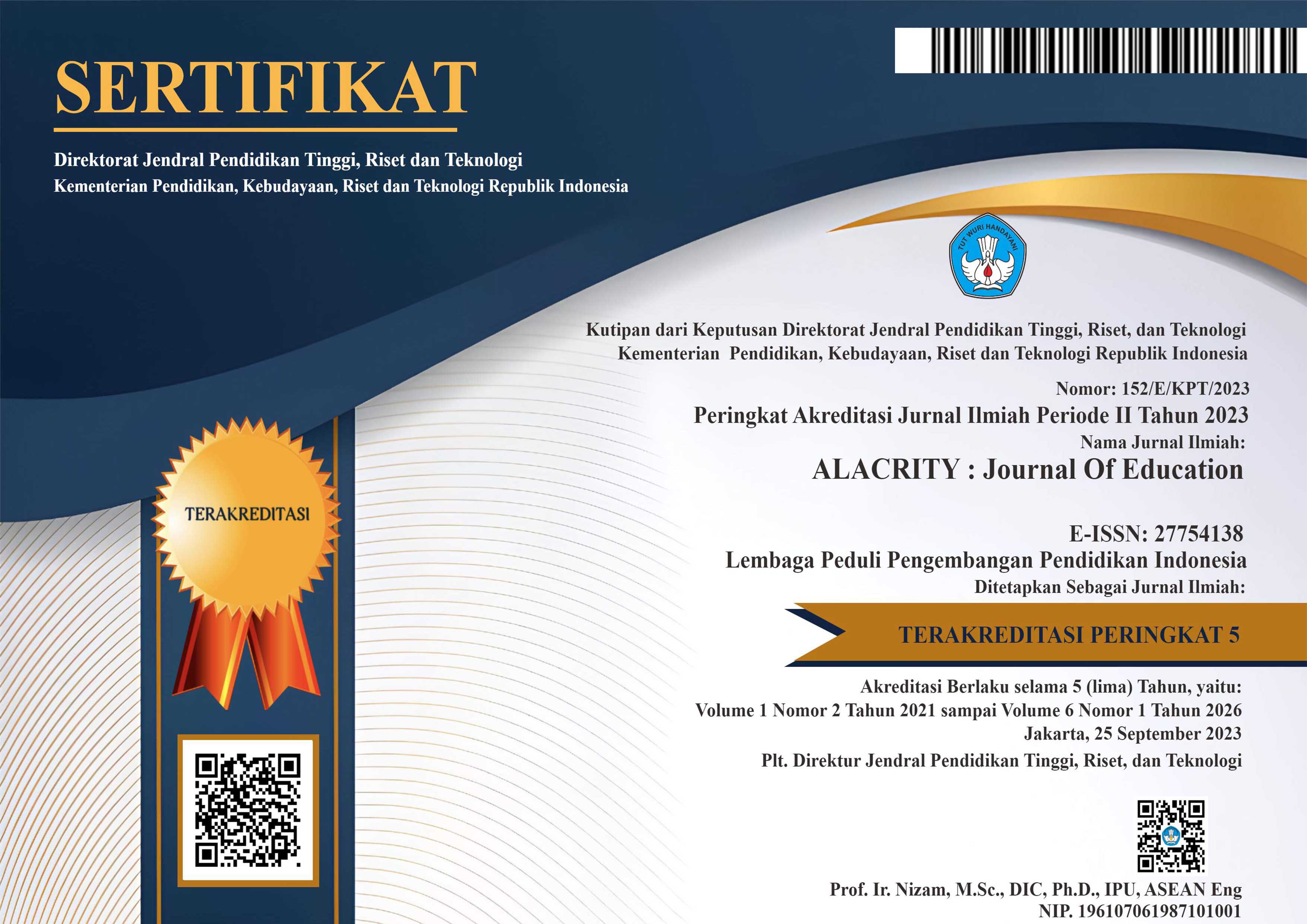Analisis Kesehatan Mental Dan Implikasinya Terhadap Pendidikan Dalam Perspektif Ibnu Sina
DOI:
https://doi.org/10.52121/alacrity.v4i2.362Keywords:
Health, Mental, Education, Ibnu SinaAbstract
This study aims to analyze Ibnu Sina's views on mental health and its implications for education. The research method employed is a qualitative approach designed as a literature review or library research. The data sources used include primary data from journal articles and books related to Ibnu Sina's perspective on mental health, and secondary data from mass media, newspapers, biographies, and social media. The findings indicate that Ibnu Sina views mental health as a balance between the body, soul, and mind, which influence each other. Through his holistic approach, he highlights the importance of maintaining physical, intellectual, and spiritual well-being, emphasizing the necessity of balance and harmony. The implications of mental health for education, from Ibnu Sina's perspective, suggest that education integrating physical, intellectual, and spiritual aspects can significantly enhance students' mental health. The holistic educational approach proposed by Ibnu Sina can help prevent mental disorders, improve academic abilities, and strengthen students' social and emotional skills. By incorporating elements such as moral education, character development, and activities that support physical and mental well-being, the educational curriculum becomes more effective in creating balanced and healthy individuals. Applying the concept of mental health from Ibnu Sina's perspective in modern educational systems can produce a more resilient, ethical generation capable of contributing positively to society.
Downloads
Published
Issue
Section
License
Copyright (c) 2024 ALACRITY : Journal of Education

This work is licensed under a Creative Commons Attribution-ShareAlike 4.0 International License.













